Fundamental Rights (Articles 12-35)

Fundamental right Enshrined in Part-III of the Indian Constitution, Fundamental Rights are the basic human rights guaranteed by the Constitution of India.
The six fundamental rights include the Right to Equality, Right to freedom, Right against exploitation, Right to freedom of Religion, Cultural and Educational Rights and Right to constitutional Remedies.
Originally Right to property (Article 31) was also included in the Fundamental Rights. However, by the 44th Constitutional Amendment Act, 1978, it was deleted from the list of Fundamental Rights and made a legal right under Article 300 A in Part XII of the constitution.
The development of Fundamental Rights in India is heavily inspired by the United States Bill of Rights. These rights are included in the constitution because they are considered essential for the development of the personality of every individual and to preserve human dignity.
Fundamental Rights are included in Part-III of the Indian constitution which is also known as the Magna Carta of the Indian Constitution.
These rights are called fundamental rights because they are justiciable in nature allowing persons to move the courts for their enforcement, if and when they are violated.
Features of The Fundamental Rights
Some of the salient features of Fundamental Rights include:
FRs are protected and guaranteed by the constitution.
FRs are NOT sacrosanct or absolute: in the sense that the parliament can curtail them or put reasonable restrictions for a fixed period of time. However, the court has the power to review the reasonability of the restrictions.
FRs are justiciable: The constitution allows the person to move directly to the Surpreme Court for the reinforcement of his fundamental right as and when they are violated or restricted.
Suspension of Fundamental Rights: All the Fundamental Rights are suspended during National Emergencies except the rights guaranteed under Articles 20 and 21.
Restriction of Fundamental Rights: The Fundamental Rights can be restricted during military rule in any particular area.
Important Articles Related To Fundamental Rights
Let us now look at some of the important articles related to the Fundamental Rights in India:
Article 12: Defines The State
Article 12 of the Indian Constitution defines The State as:
The Government and Parliament of India,
The Government and legislatures of the states,
All local authorities and
Other authorities in India or under the control of the Government of India.
Article 13: Defines Laws Inconsistent with or In derogation of Fundamental Rights
Article 13 of the Indian Constitution states that:
All laws in force in the territory of India immediately before the commencement of this Constitution, in so far as they are inconsistent with the provisions of this Part, shall, to the extent of such inconsistency, be void.
The State shall not make any law which takes away or abridges the rights conferred by this Part and any law made in contravention of this clause shall, to the extent of the contravention, be void.
In this article, unless the context otherwise required, – (a) “law” includes any Ordinance, order, bye-law, rule, regulation, notification, custom or usage having in the territory of India the force of law; (b)“laws in force” includes laws passed or made by a Legislature or other competent authority in the territory of India before the commencement of this Constitution and not previously repealed, notwithstanding that any such law or any part thereof may not be then in operation either at all or in particular areas.
Nothing in this article shall apply to any amendment of this Constitution made under article 368.
ARTICLE 14 : EQUALITY BEFORE LAw

The State shall not deny to any person equality before the law or the equal protection of the laws within the territory of India.
ARTICLE 15 : PROHIBITION OF DISCRIMINATION ON GROUNDS OF RELIGION, RACE, CASTE, SEX OR PLACE OF BIRTH
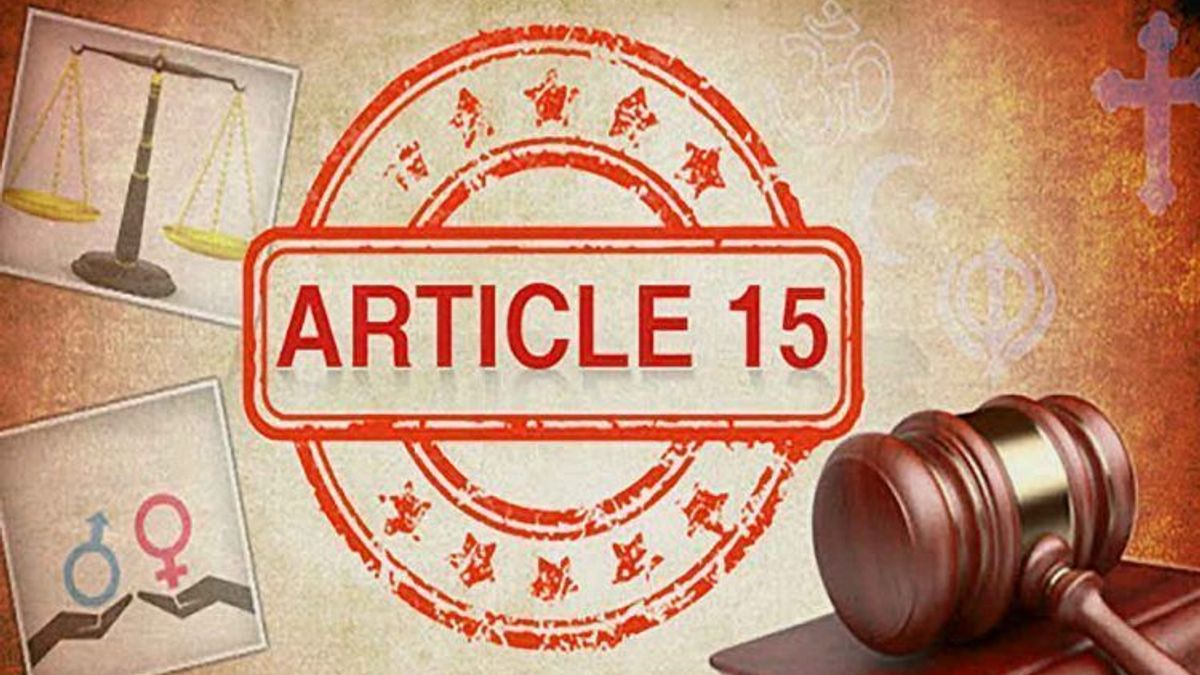
(1) The State shall not discriminate against any citizen on grounds only of religion, race, caste, sex, place of birth or any of them.
(2) No citizen shall, on ground only of religion, race, caste, sex, place of birth or any of them, be subject to any disability, liability, restriction or condition with regard to –
(a) access to shops, public restaurants, hotels and places of public entertainment; or
(b) the use of wells, tanks, bathing ghats, roads and places of public resort maintained whole or partly out of State funds or dedicated to the use of general public.
(3) Nothing in this article shall prevent the State from making any special provision for women and children.
(4) Nothing in this article or in clause (2) or article 29 shall prevent the State from making any special provision for the advancement of any socially and educationally backward classes of citizens or for the Scheduled Castes and the Scheduled Tribes.ARTICLE 16 : EQUALITY OF OPPORTUNITY IN MATTERS OF PUBLIC EMPLOYMENT
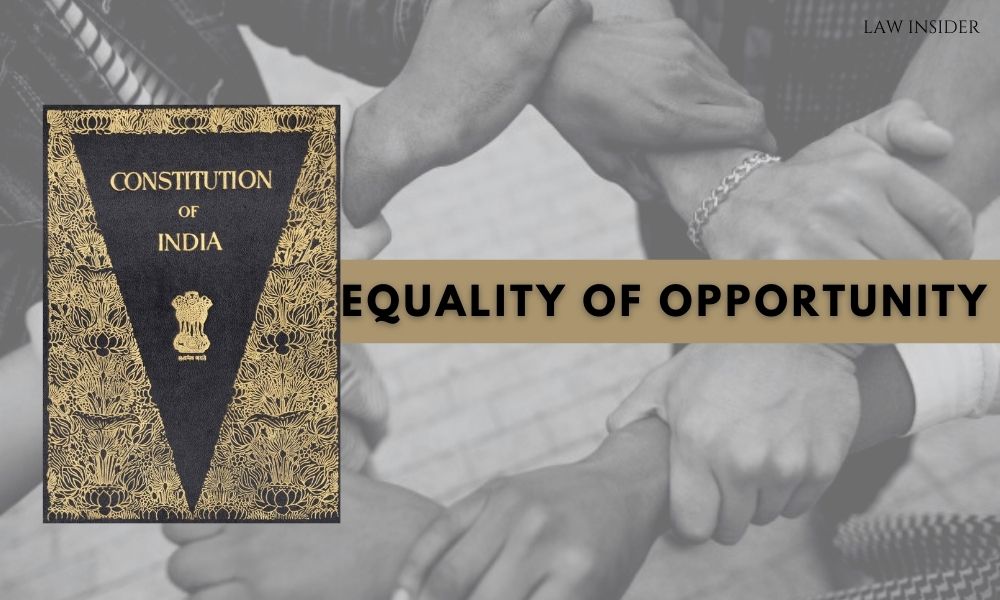
(1) There shall be equality of opportunity for all citizens in matters relating to employment or appointment to any office under the State.
(2) No citizen shall, on grounds only of religion, race, caste, sex, descent, place of birth, residence or any of them, be ineligible for, or discriminated against in respect of, any employment or office under the State.
(3) Nothing in this article shall prevent Parliament from making any law prescribing, in regard to a class or classes of employment or appointment to an office under the Government of, or any local or other authority within, a State or Union territory, any requirement as to residence within that State or Union territory prior to such employment or appointment.
(4) Nothing in this article shall prevent the State from making any provision for the reservation of appointments or posts in favour of any backward class of citizens which, in the opinion of the State, is not adequately represented in the services under the State.
(4A) Nothing in this article shall prevent the State from making any provision for reservation in matters of promotion to any class or classes of posts in the services under the State in favour of the Scheduled Castes and the Scheduled Tribes which, in the opinion of the State, are not adequately represented in the services under the State.
(5) Nothing in this article shall affect the operation of any law which provides that the incumbent of an office in connection with the affairs of any religious or denominational institution or any member of the governing body thereof shall be a person professing a particular religion or belonging to a particular denomination.ARTICLE 17 : ABOLITION OF UNTOUCHABILITY
“Untouchability” is abolished and its practice in any form is forbidden. The enforcement of any disability arising out of “Untouchability” shall be an offence punishable in accordance with law.
ARTICLE 18 : ABOLITION OF TITLES
(2) No citizen of India shall accept any title from any foreign State.
(3) No person who is not a citizen of India shall, while he holds any office of profit or trust under the State, accept without the consent of the President any title from any foreign State.
(4) No person holding any office of profit or trust under the State shall, without the consent of the President, accept any present, emolument, or office of any kind from or under any foreign State.
ARTICLE 19 : PROTECTION OF CERTAIN RIGHTS REGARDING FREEDOM OF SPEECH, ETC.

- ARTICLE 20 : PROTECTION IN RESPECT OF CONVICTION FOR OFFENCES
(1) No person shall be convicted of any offence except for violation of a law in force at the time of the commission of the act charged as an offence, not be subjected to a penalty greater than that which might have been inflicted under the law in force at the time of the commission of the offence.
(2) No person shall be prosecuted and punished for the same offence more than once.
(3) No person accused of any offence shall be compelled to be a witness against himself.ARTICLE 21 : PROTECTION OF LIFE AND PERSONAL LIBERTY
No person shall be deprived of his life or personal liberty except according to procedure established by law.
Article 21A: Right to education
The State shall provide free and compulsory education to all children of the age of six to fourteen years in such manner as the State may, by law, determine.This Article added after 86th constitutional amendment act 2002.
ARTICLE 22 : PROTECTION AGAINST ARREST AND DETENTION IN CERTAIN CASES
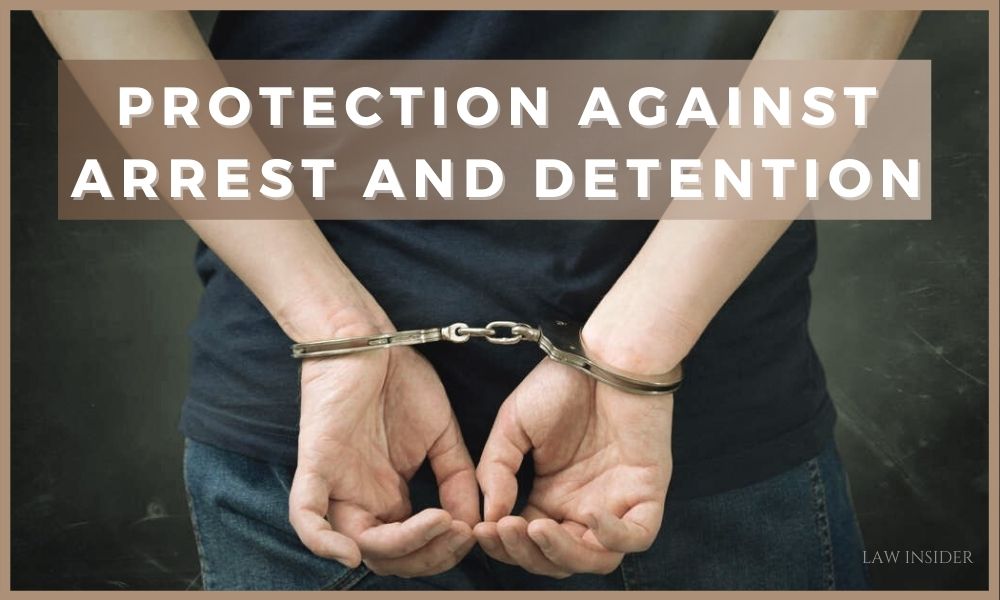
(1) No person who is arrested shall be detained in custody without being informed, as soon as may be, of the grounds for such arrest nor shall he be denied the right to consult, and to be defended by, a legal practitioner of his choice.
(2) Every person who is arrested and detained in custody shall be produced before the nearest magistrate within a period of twenty-four hours of such arrest excluding the time necessary for the journey from the place of arrest to court of the magistrate and no such person shall be detained in custody beyond the said period without the authority of a magistrate.ARTICLE 23 : PROHIBITION OF TRAFFIC IN HUMAN BEINGS AND FORCED LABOUR
(1) Traffic in human beings and begar and other similar forms of forced labour are prohibited and any contravention of this provision shall be an offence punishable in accordance with law.
(2) Nothing in this article shall prevent the State from imposing compulsory service for public purposes, and in imposing such service the State shall not make any discrimination on ground only of religion, race, caste or class or any of them.ARTICLE 24 : PROHIBITION OF EMPLOYMENT OF CHILDREN IN FACTORIES, ETC.
No child below the age of fourteen years shall be employed to work in any factory or mine or engaged in any other hazardous employment.
ARTICLE 25 : FREEDOM OF CONSCIENCE AND FREE PROFESSION, PRACTICE AND PROPAGATION OF RELIGION
(1) Subject to public order, morality and health and to the other provisions of this Part, all persons are equally entitled to freedom of conscience and the right freely to profess, practice and propagate religion.
(2) Nothing in this article shall affect the operation of any existing law or prevent the State from making any law –
(a) regulating or restricting any economic, financial, political or other secular activity which may be associated with religious practice;
(b) providing for social welfare and reform or the throwing open of Hindu religious institutions of a public character to all classes and sections of Hindus.ARTICLE 26 : FREEDOM TO MANAGE RELIGIOUS AFFAIRS
Subject to public order, morality and health, every religious denomination or any section thereof shall have the right –
(a) to establish and maintain institutions for religious and charitable purposes;
(b) to manage its own affairs in matters of religion;
(c) to own and acquire movable and immovable property; and
(d) to administer such property in accordance with the law.ARTICLE 27 : FREEDOM AS TO PAYMENT OF TAXES FOR PROMOTION OF ANY PARTICULAR RELIGION
No person shall be compelled to pay any taxes, the proceeds of which are specifically appropriated in payment of expenses for the promotion or maintenance of any particular religion or religious denomination.
ARTICLE 28 : FREEDOM AS TO ATTENDANCE AT RELIGIOUS INSTRUCTION OR RELIGIOUS WORSHIP IN CERTAIN EDUCATIONAL INSTITUTIONS
(1) No religious instruction shall be provided in any educational institution wholly maintained out of State funds.
(2) Nothing in clause (1) shall apply to an educational institution which is administered by the State but has been established under any endowment or trust which requires that religious instruction shall be imparted in such institution.
(3) No person attending any educational institution recognised by the State or receiving aid out of State funds shall be required to take part in any religious instruction that may be imparted in such institution or to attend any religious worship that may be conducted in such institution or in any premises attached thereto unless such person or, if such person is minor, his guardian has given his consent thereto.ARTICLE 29 : PROTECTION OF INTERESTS OF MINORITIES
(1) Any section of the citizens residing in the territory of India or any part thereof having a distinct language, script or culture of its own shall have the right to conserve the same.
(2) No citizen shall be denied admission into any educational institution maintained by the State or receiving aid out of State funds on grounds only of religion, race, caste, language or any of them.ARTICLE 30 : RIGHT OF MINORITIES TO ESTABLISH AND ADMINISTER EDUCATIONAL INSTITUTIONS
(1) All minorities, whether based on religion or language, shall have the right to establish and administer educational institutions of their choice.
ARTICLE 32 : REMEDIES FOR ENFORCEMENT OF RIGHTS CONFERRED BY THIS PART
(1) The right to move the Supreme Court by appropriate proceedings for the enforcement of the rights conferred by this Part is guaranteed.
(2) The Supreme Court shall have power to issue directions or orders or writs, including writs in the nature of habeas corpus, mandamus, prohibition, quo warranto and certiorari, whichever may be appropriate, for the enforcement of any of the rights conferred by this Part.
(3) Without prejudice to the powers conferred on the Supreme Court by clauses (1) and (2), Parliament may by law empower any other court to exercise within the local limits of its jurisdiction all or any of the powers exercisable by the Supreme Court under clause (2).
(4) The right guaranteed by this article shall not be suspended except as otherwise provided for by this Constitution.
THANKS FOR READING............
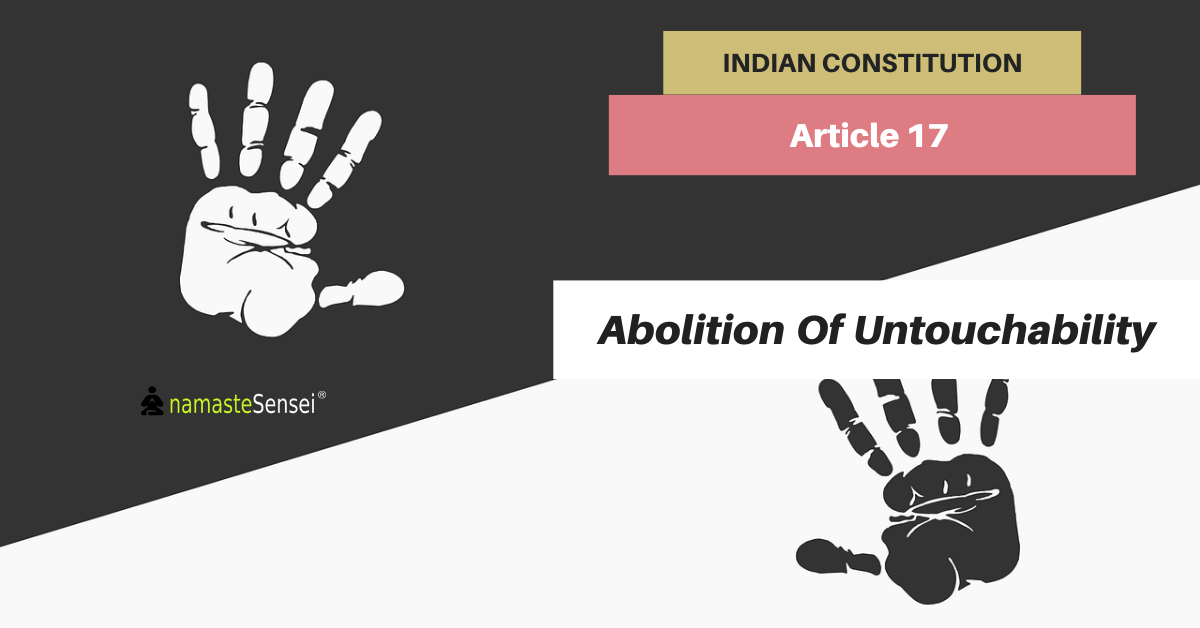



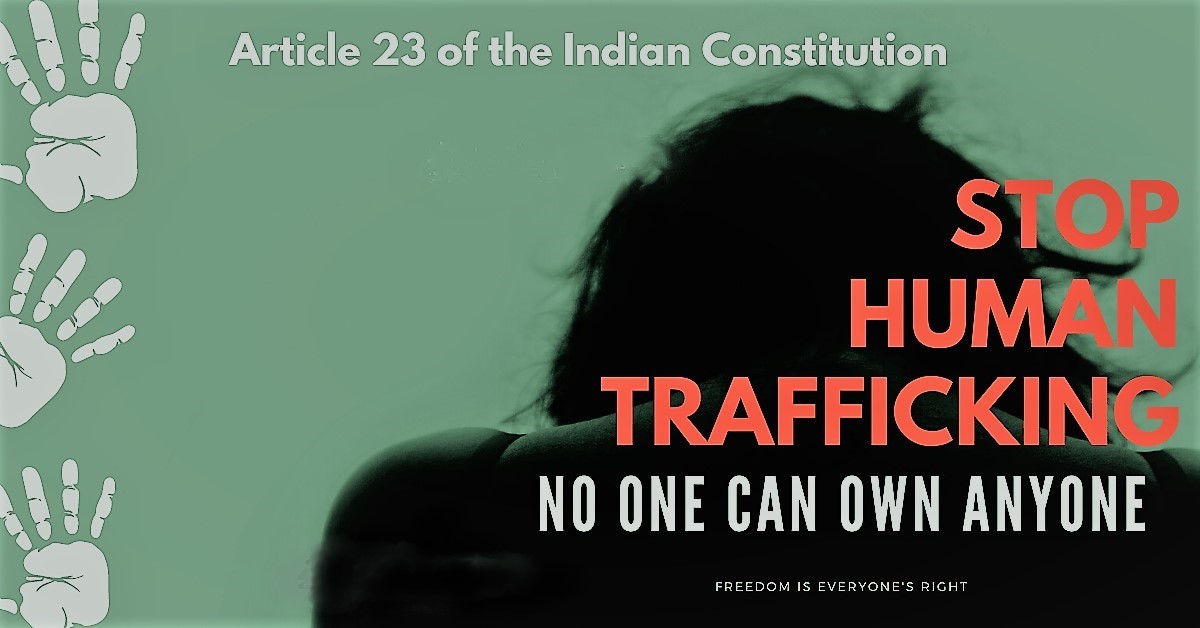

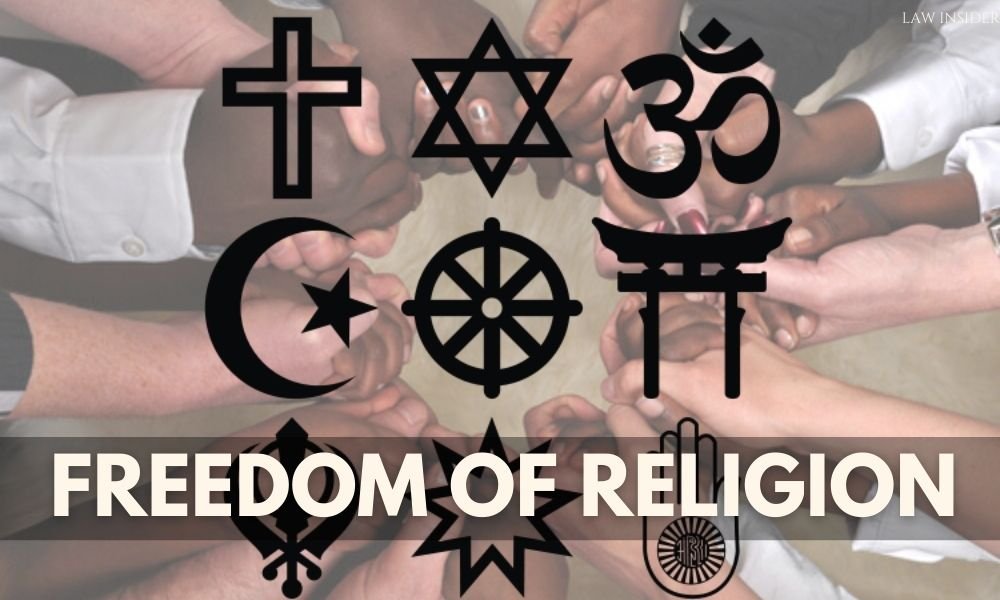

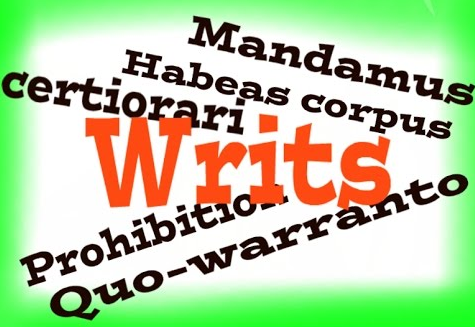
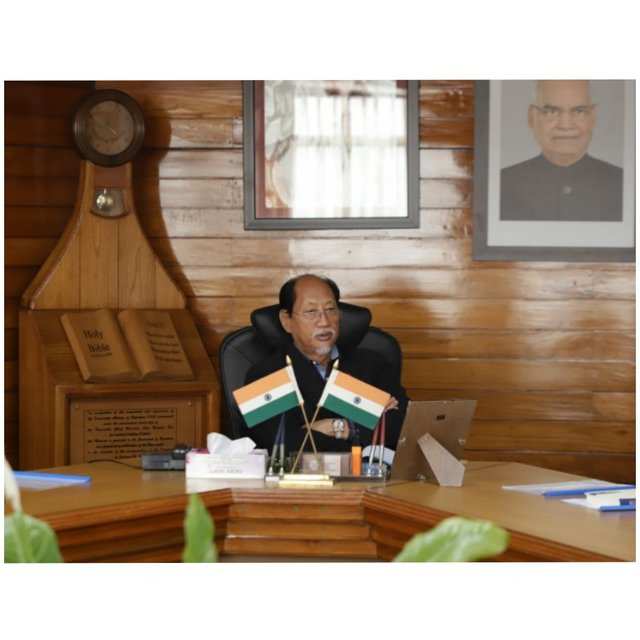

No comments:
Post a Comment